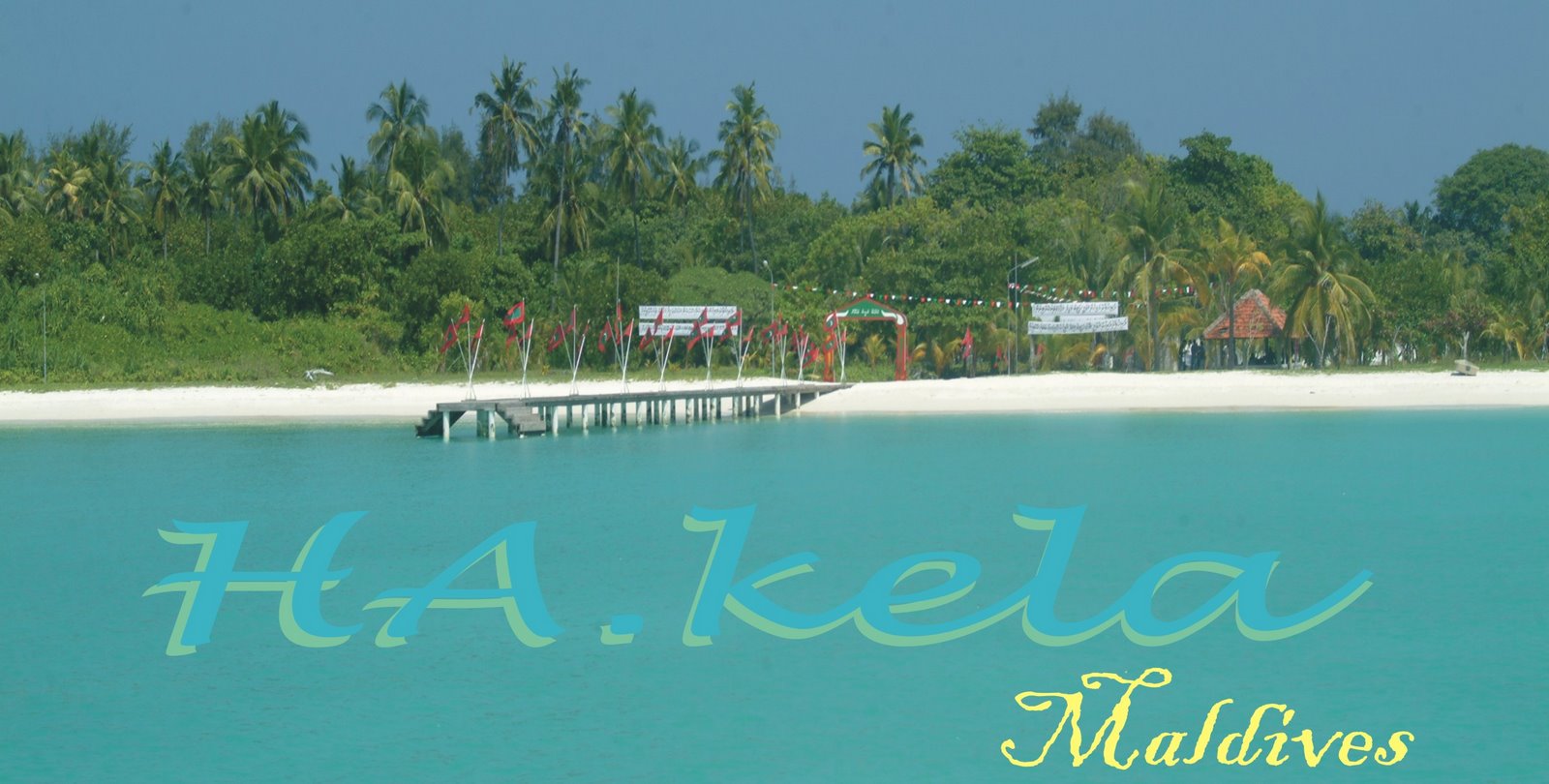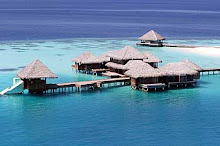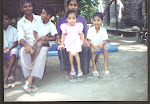 topPolitics in Maldives
topPolitics in MaldivesThe current president, Maumoon Abdul Gayoom, has been in office for all but 10 years of the period since Maldives became a Republic in 1968, making him the longest serving political leader in Asia. Although generally considered a liberal and moderate voice on the Maldivian political scene, Gayoom has in recent years been heavily criticised for his autocratic rule. He survived an assassination attempt in January 2008. Seeking to challenge the autocracy of
 Gayoom, the Maldivian Democratic Party (MDP) was formed by a group of activists in 2001. It established itself in exile in Sri Lanka, bringing international attention to democratic shortcomings of the Gayoom regime. Political parties were not allowed and candidates for the Majlis (parliament) stood as independents. The 50 members of the Majlis elected the president who was then approved in a public vote in which no other candidates stood. By powers of appointment the president had effective control over the cabinet, judiciary, the civil service and local government. This feudal political apparatus looked increasingly out of place in the 21st century. In response to national and international criticism, a constituent assembly was established in 2004. In June 2005, parliament unanimously voted in favour of introducing multi-party democracy in the Maldives and four political parties have registered; the Maldivian Democratic Party (MDP), Justice Party (Adaalath Party - AP), Islamic Democratic Party (IDP) and the Maldivian People’s Party (Dhivehi Rayyithunge Party - DRP) which is headed by the current president. As part of the constitutional review, a 2007 referendum was held to determine whether a presidential or parliamentary model should be adopted. Over 70% of the voters supported Gayoom’s recommendation for the presidential route but the powers of office will be reduced and the incumbent limited to two terms. An election must be held in October 2008 along conventional lines – apart from Gayoom himself for the DRP, the other parties have announced their candidates including Mohammad Nasheed for the MDP, democratically selected through a “primary” process. Parliamentary elections are due to follow in March 2009. Despite factionalism amongst its members, by April 2008 the constituent assembly finally produced a revised constitution which now awaits the ratification of the president. There is concern that the delay allows too little time to pass legislation governing the new electoral process. Maldives has an active civil society. All islands are, by law, required to have an Island Development Committee and a Women's Development Committee. Although these committees work with varying degree of success, they are an important link between the government and local island communities. The two largest NGOs in the country, SHE and Fashan, are mainly concerned with Health Education
Gayoom, the Maldivian Democratic Party (MDP) was formed by a group of activists in 2001. It established itself in exile in Sri Lanka, bringing international attention to democratic shortcomings of the Gayoom regime. Political parties were not allowed and candidates for the Majlis (parliament) stood as independents. The 50 members of the Majlis elected the president who was then approved in a public vote in which no other candidates stood. By powers of appointment the president had effective control over the cabinet, judiciary, the civil service and local government. This feudal political apparatus looked increasingly out of place in the 21st century. In response to national and international criticism, a constituent assembly was established in 2004. In June 2005, parliament unanimously voted in favour of introducing multi-party democracy in the Maldives and four political parties have registered; the Maldivian Democratic Party (MDP), Justice Party (Adaalath Party - AP), Islamic Democratic Party (IDP) and the Maldivian People’s Party (Dhivehi Rayyithunge Party - DRP) which is headed by the current president. As part of the constitutional review, a 2007 referendum was held to determine whether a presidential or parliamentary model should be adopted. Over 70% of the voters supported Gayoom’s recommendation for the presidential route but the powers of office will be reduced and the incumbent limited to two terms. An election must be held in October 2008 along conventional lines – apart from Gayoom himself for the DRP, the other parties have announced their candidates including Mohammad Nasheed for the MDP, democratically selected through a “primary” process. Parliamentary elections are due to follow in March 2009. Despite factionalism amongst its members, by April 2008 the constituent assembly finally produced a revised constitution which now awaits the ratification of the president. There is concern that the delay allows too little time to pass legislation governing the new electoral process. Maldives has an active civil society. All islands are, by law, required to have an Island Development Committee and a Women's Development Committee. Although these committees work with varying degree of success, they are an important link between the government and local island communities. The two largest NGOs in the country, SHE and Fashan, are mainly concerned with Health Education Mohamed Nasheed (Anni)
Mohamed Nasheed (Anni)Congratulation messages are pouring to President-elect Mohamed Nasheed who has won the first multi-party presidential election on 28 October. People from islands and different walks of life have been joyfully sending their mesages of congratulations and good wishes to Mr. Nasheed who has been acclaimed by the people as a hero of their their new founded freedom and democracy.
These messages are coming in the form of SMS messages through Nasheed’s secretariat, through the radi and tv channels. Messages
 from the people express their gratitude to Nasheed for his relentless struggle to bring democratic reform and to address plights of the people. They said they have great hope in Nasheed’s sagacity and leadership to usher a new era of democracy peace and development. ” We are proud of you Nasheed for your courage and will, and you have won for the people. We have faith in you, you will lead our country towards greater prosperity and happiness” ” I am delighted you have won the election, it is a victory for the people. We can never forget you for your great sacrifice, and we pray for the peace and progress of the country” ” We are gratified by your election victory bringing an end to Gayoom’s 30 years rule. We hope democracy and justice would prevail in our country” ” Thank you and Congratulations Nasheed, for your great service for democracy for and winning this election. I hope you will make a successful presidency with equalilty and justice to all as you have always advocated” ” Congratulations Nasheed for your grand victory, We are proud of you, you are truly our hero, Its great to see your example of respect and tolerance and the manner in which you said you will hold Gayoom in dignity and honour This will be your legacy and the country’s legacy if you forget the past and look at the future” Increasing number of messages coming from people have expressed their sentiments of joy and hope by the election of Nasheed as the new President.
from the people express their gratitude to Nasheed for his relentless struggle to bring democratic reform and to address plights of the people. They said they have great hope in Nasheed’s sagacity and leadership to usher a new era of democracy peace and development. ” We are proud of you Nasheed for your courage and will, and you have won for the people. We have faith in you, you will lead our country towards greater prosperity and happiness” ” I am delighted you have won the election, it is a victory for the people. We can never forget you for your great sacrifice, and we pray for the peace and progress of the country” ” We are gratified by your election victory bringing an end to Gayoom’s 30 years rule. We hope democracy and justice would prevail in our country” ” Thank you and Congratulations Nasheed, for your great service for democracy for and winning this election. I hope you will make a successful presidency with equalilty and justice to all as you have always advocated” ” Congratulations Nasheed for your grand victory, We are proud of you, you are truly our hero, Its great to see your example of respect and tolerance and the manner in which you said you will hold Gayoom in dignity and honour This will be your legacy and the country’s legacy if you forget the past and look at the future” Increasing number of messages coming from people have expressed their sentiments of joy and hope by the election of Nasheed as the new President.There are meetings and receptions held in different parts of the country to mark Nasheed’s election victory.























No comments:
Post a Comment